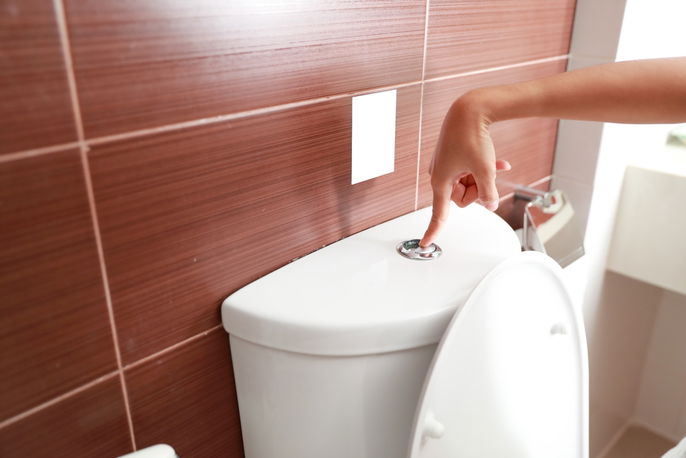Frequent urination is considered to be a normal finding, especially after drinking lots of fluids. However, it can also be a sign of a health condition, like a UTI or diabetes, especially if you also notice other symptoms, like pain or burning with urination or incontinence.
Frequent urination can also present with other symptoms, like blood in the urine, abdominal pain or a fever, which should be assessed by your doctor.
If your frequent urination is interrupting your day-to-day routine, or if it is sudden and presents with other symptoms, you are advised to see a medical evaluation to determine the underlying cause.

What causes frequent urination?
Frequent urination can be caused by:
1. Drinking a lot of water, coffee or alcoholic drinks
When you drink a lot of water, it is expected that the water will be eliminated through the urine, therefore it is normal to pee more frequently. This is a normal bodily response that can also occur after eating water-rich food, like oranges or watermelon.
Drinking a lot of coffee and other foods with high caffeine content, like chocolate, yerba mate and black tea can also cause urinary frequency. In addition to containing water, caffeine is a natural diuretic. Alcohol is also a diuretic and should be avoided if you are looking to quench your thirst, as alcohol will not hydrate you and can lead to negative health consequences.
What to do: To decrease urinary frequency, engaging in physical activity can help to eliminate excess fluid in the body. You should also decrease your consumption of drinks with caffeine and sodas.
2. Diuretics
Some medications used to treat heart conditions like furosemide, spirinolactone and aldactone can lead to urinary frequency.
What to do: If you notice urinary frequency after using medication, you should communicate this to the doctor, so that your symptom is assessed and alternative medication or dosing can be considered.
3. Urinary tract infection (UTI)
An increase in urinary frequency can also be caused by a UTI, especially if you are experiencing other symptoms like pain or burning with urination, decreased urine production and urinary urgency (the feeling of needing to urinate urgently). Learn more aboutthe most common symptoms of a UTI.
What to do: You should consult your doctor if you suspect a UTI so that testing can be ordered to confirm the presence of bacteria in the urine. From there, UTI treatment can be initiated, usually with the use of antibiotics.
Learn more about teas for a UTI that you can prepare to help speed-up your recovery.
4. High blood sugar levels
Needing to pee all the time may be a sign of high blood sugar levels, which occurs in people with uncontrolled diabetes. If the body detects high levels of sugar in the blood, then it tries to excrete the excess through the urine.
A diabetes diagnosis is not completed with just a urine test, but it can involve monitoring for urine volume produced in a day or testing for glucose in the urine. A diagnosis is usually confirmed with a blood test, specifically a blood sugar test.
What to do: If it is confirmed that urinary frequency is due to diabetes, then it is important to follow treatment as indicated by your doctor, which can involve the use of medications to regulate circulating glucose levels. Diet and lifestyle changes also play a big role in the long-term treatment of diabetes.
Check-out other tips on how to lower blood sugar.
5. Urinary incontinence
Urinary incontinence occurs when you are unable to hold your urine. In addition to peeing frequently, you are unable to control the urge to pee before you reach the bathroom, resulting in wetting your clothes. Although it can occur in men, incontinence is more frequent in women, especially during pregnancy or after menopause.
What to do: Treatment for urinary incontinence can be done with Kegel exercises, which aim to strengthen the pelvic floor. Surgical intervention may needed in some cases.
6. Enlarged prostate
An enlarged prostate may also increase urinary frequency in men, and is most common in men over the age of 45. One of the signs of frequency due to prostate changes is a new urge to pee in the middle of the night.
What to do: It is important for men to consult their doctor to assess for any prostate changes and indicate treatment as necessary. Treatment may involve the use medications to decrease prostate size, like antibiotics, or surgery in more serious cases.
Also recommended: 4 Natural Remedies for an Enlarged Prostate tuasaude.com/en/natural-remedies-for-enlarged-prostate7. Overactive bladder
An overactive bladder is a condition characterized by the sudden, urgent sensation to urinate, even when the bladder is not completely full. This condition may be caused by an increase in the activity of the muscle that is responsible for controlling the bladder, or it can be a consequence of abnormal nerve signals between the brain and the bladder.
What to do: Treatment for an overactive bladder includes physical therapy to strengthen the pelvic floor. This can be achieved with Kegel exercises and other techniques such as biofeedback or electrostimulation. In more severe cases, your doctor may also recommend medication or surgery.






























